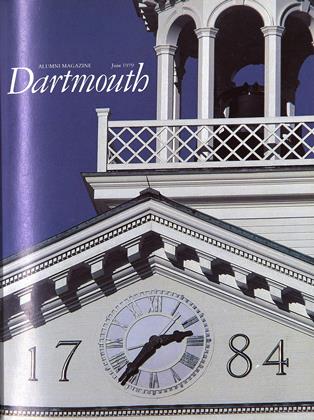It shouldn't be surprising that the world and its complex diversity was so poorly comprehended in the 16th and 17th centuries; it is hardly understood or appreciated today. Yet one can only guess at the impact of Lafitau's monumental work, which bears the full title Customs of the American Indians Comparedwith the Customs of Primitive Times, when it appeared in 1724. It revolutionized the manner in which learned Europeans conceived and perceived other societies and virtually introduced such contemporary anthropological assumptions as cultural pluralism and relativism.
Father Lafitau (1681-1746) was born in Bordeaux and spent a number of years as a Jesuit missionary to Canada. During his search for a North American strain of ginseng, he began to collect a wide variety of data on Iroquoian and, indirectly, Huron societies, and he later supplemented his first-hand knowledge by comparing texts and skimming "everything that had been written on America since the discovery. " Though an overstatement for a variety of reasons, there is no doubt that Lafitau was a voracious researcher who brought to bear on his writings theory and reportage extending from the Bible and the classics to some of the foremost scholarship of his day.
Among his many remarkable and lasting achievements were the recognition of the importance of women in Iroquoian society and ground-breaking insights into such subjects as the universality of the institution of marriage and the significance of age-grading and classificatory kinship systems. A confirmed diffusionist intent on establishing "proofs" for religious dogma, Lafitau's work is important, in the anthropological sense, not so much for what he was trying to do (document the thenpopular theory of "cultural evolution"), but for what he did. He attempted to maintain a scientific point of view throughout and emphasized the idea that a culture could best be studied first in terms of itself.
The translation, citation, and illumination of Customs has occupied Fenton and Moore "part-time for three decades." It was indeed a Herculean task, entailing the tracing of a thousand of Lafitau's references through many editions of the scholarly works of his time. An analysis of the sources of Lafitau's American illustrations alone requires a major documentary appendix chapter by the Smithsonian's William Sturtevant. But the effort was worth it.
In their fascinating and enormously erudite introductory essay, the editors demonstrate that the value of Lafitau's work is multifaceted. The book, appearing at the beginning of the Enlightenment, can be viewed as something of a watershed in the history of ideas. In many respects it reveals as much of European thinking and culture as it does of Native American. It presages the development of the disciplines of anthropology, history, and ethnohistory and firmly sets the future course of the comparative method of social scientific inquiry.
Moreover, in their comprehensive analysis of the work, Fenton and Moore provide a tour-deforce lesson in etymological description and translation. In placing Lafitau within the context of the development of European thought, they shed new light upon such giants as Rousseau, Voltaire, and Montesquieu. Their edition is not only definitive, but accessible, thanks to its voluminous and detailed indices and its excellent reproductions of key illustrations. In happy collaboration with their intellectual predecessor and colleague, Father Lafitau, they have produced a tremendous and lasting scholarly resource.
There is certainly no adequate way to "review" a book which has endured for over 250 years, much less one with the magnitude and import of Customs of the American Indians. It confounded even the would-be critics of its day. Let me then conclude by reiterating and underlining the sentiments of one of them who, in 1724, was moved to write: "Although one cannot call attention to everything worthy of notice in this work, one cannot help but admire the achievement." Amen.
CUSTOMS OF THEAMERICAN INDIANSBy Father Joseph LafitauTranslated by William Fenton '30and Elizabeth MooreChamplain Society, 1974, 197712 vols., 755 pp. $30
An associate professor of anthropology atDartmouth, Michael Dorris is chairman of theNative American Studies program.
 View Full Issue
View Full Issue
More From This Issue
-
 Feature
Feature'We will all make whoopee'
June 1979 By Dick Holbrook -
 Feature
FeatureE – i – e – i – o
June 1979 By Marshall Ledger -
 Feature
FeatureExit with a Flourish
June 1979 By Beverly Foster -
 Feature
FeatureEncouraging growth, affirming the educational process
June 1979 By Robert Kilmarx -
 Article
ArticleCommencement
June 1979 By James L. Farley -
 Article
Article'Radical' with a Cause
June 1979 By Tim Taylor
MICHAEL DORRIS
Books
-
 Books
BooksMathematical Theory of Life Insurance
April, 1925 -
 Books
BooksFaculty Publications
December 1935 -
 Books
BooksFAMOUS FIRST FLIGHTS THAT CHANGED HISTORY.
APRIL 1969 By DOUGLAS F. STORER '21 -
 Books
BooksSailing West to Eden
SEPTEMBER 1983 By Frederick A. Meier '70, DMS '72 -
 Books
BooksANGOLA.
OCTOBER 1971 By LEO SPITZER -
 Books
BooksRICHARD EBERHART: SELECTED POEMS 1930-1965.
DECEMBER 1965 By ROBERTS W. FRENCH '56






